
Call us:
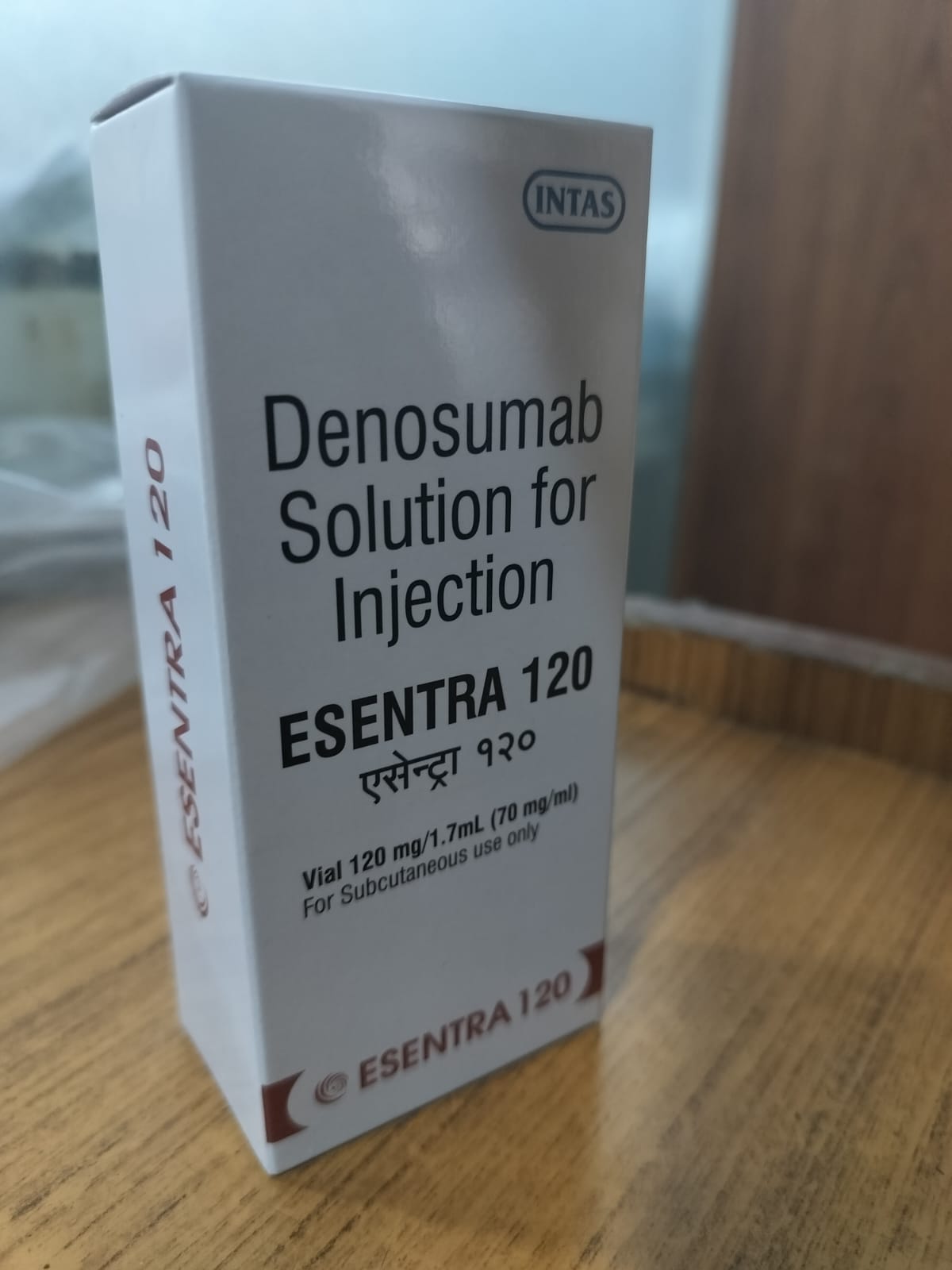
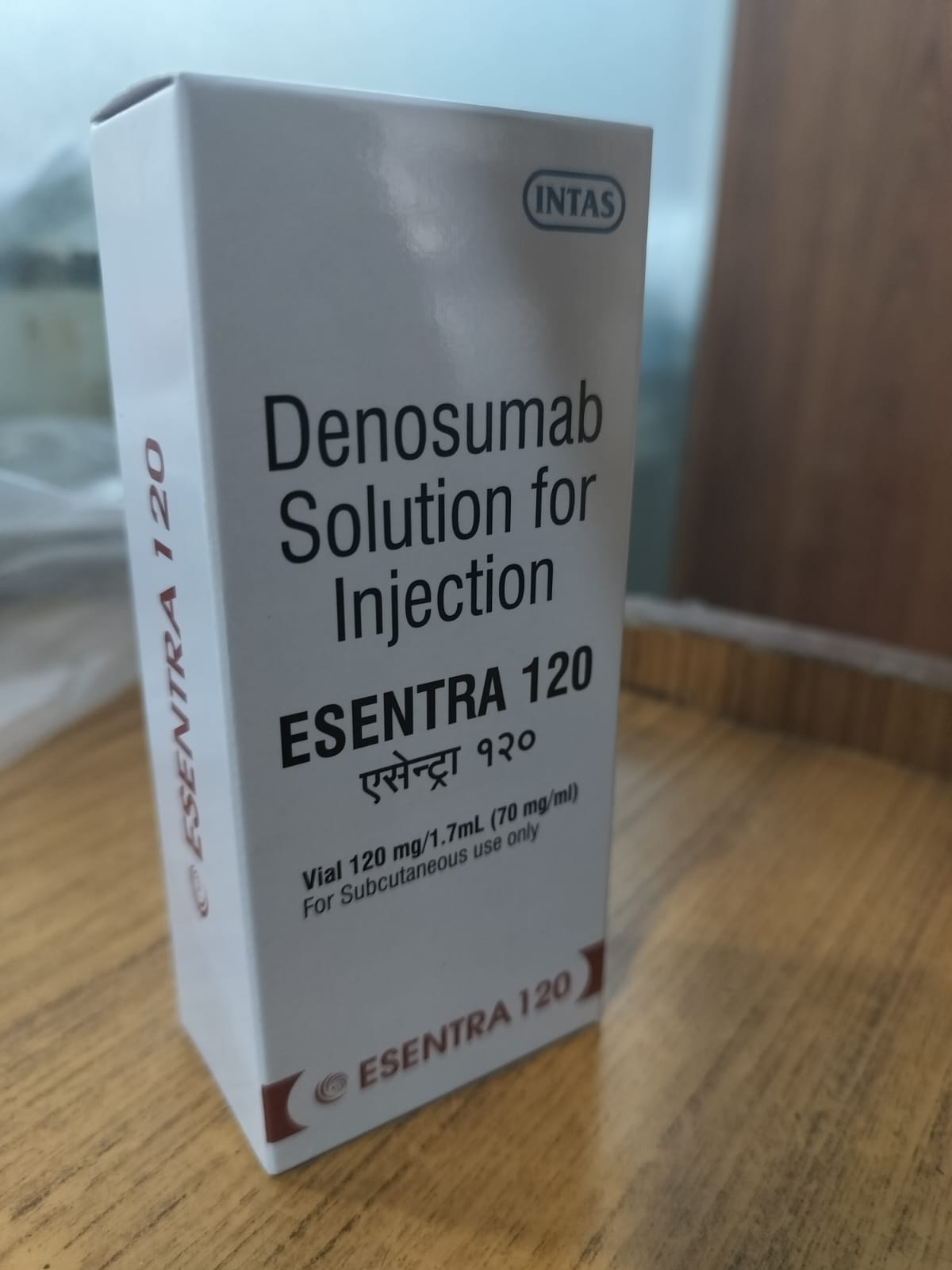
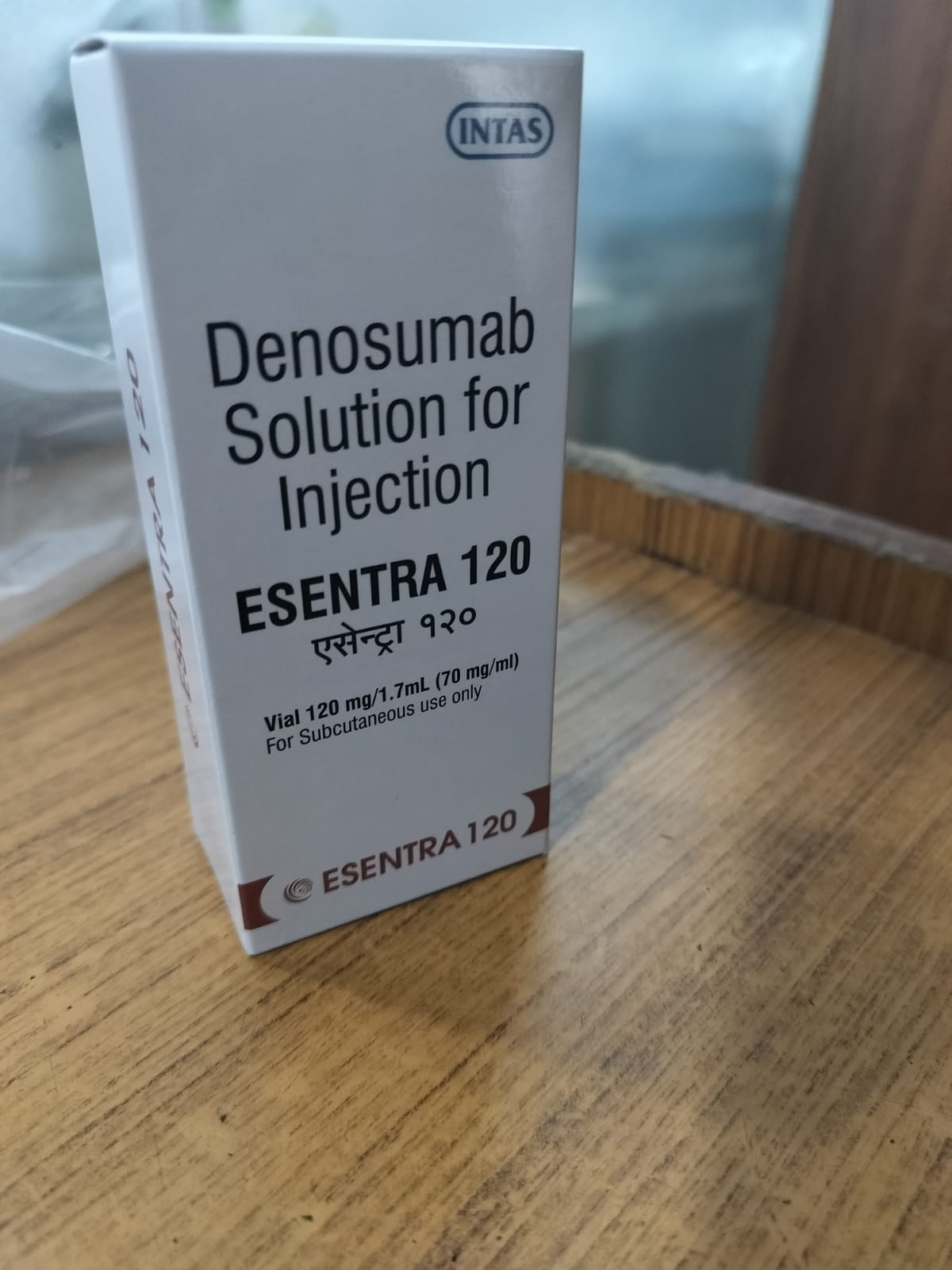
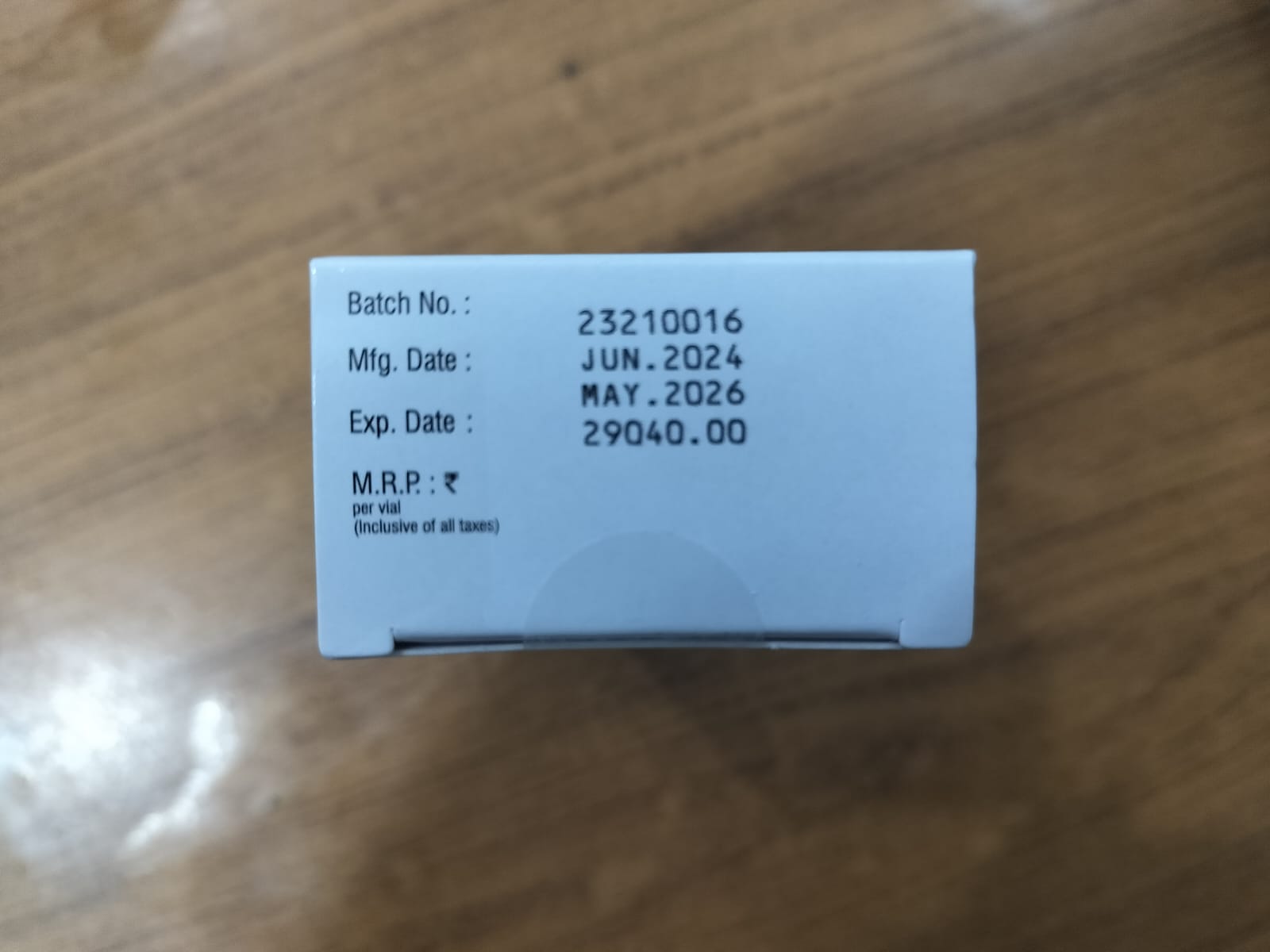
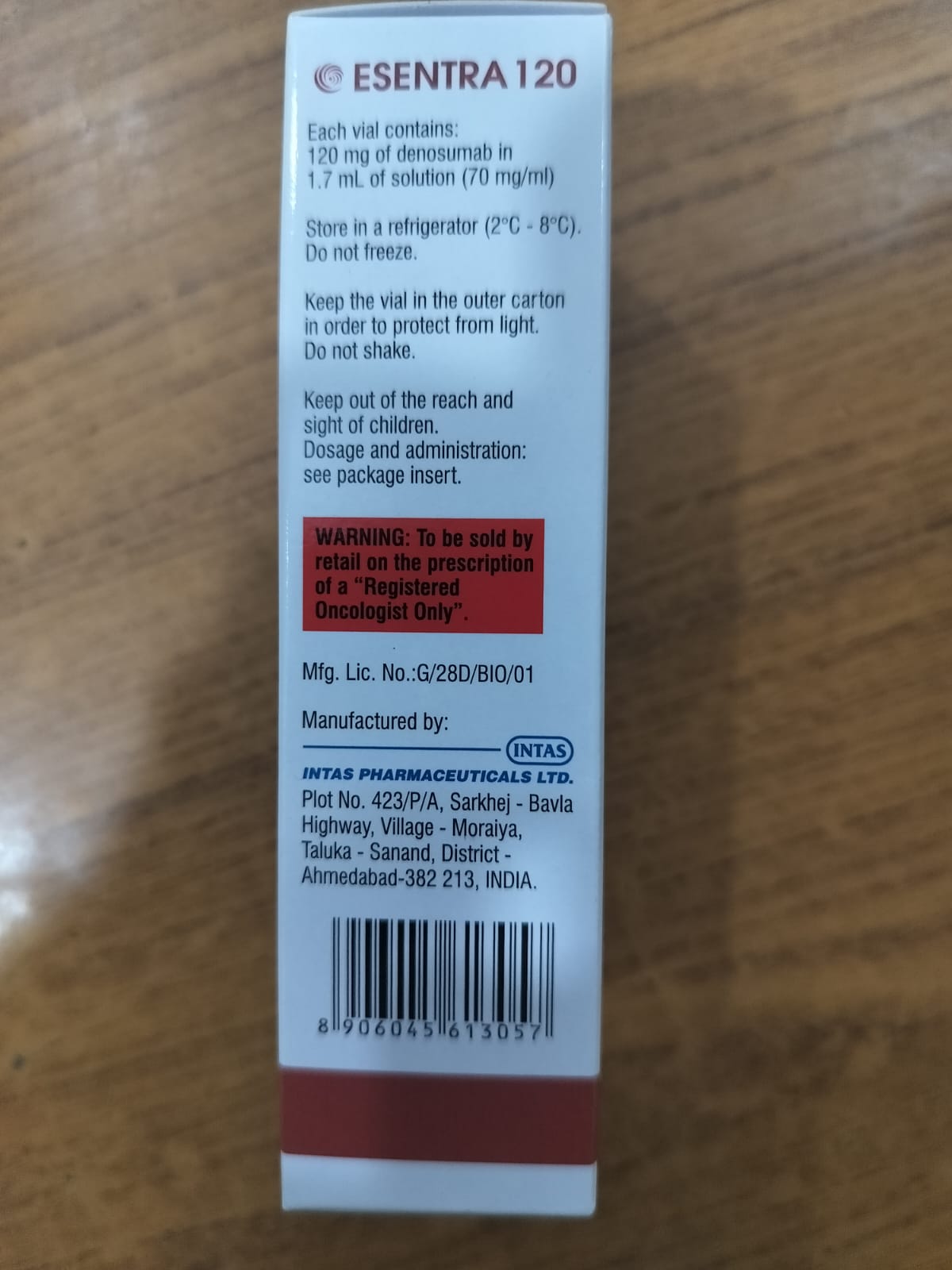
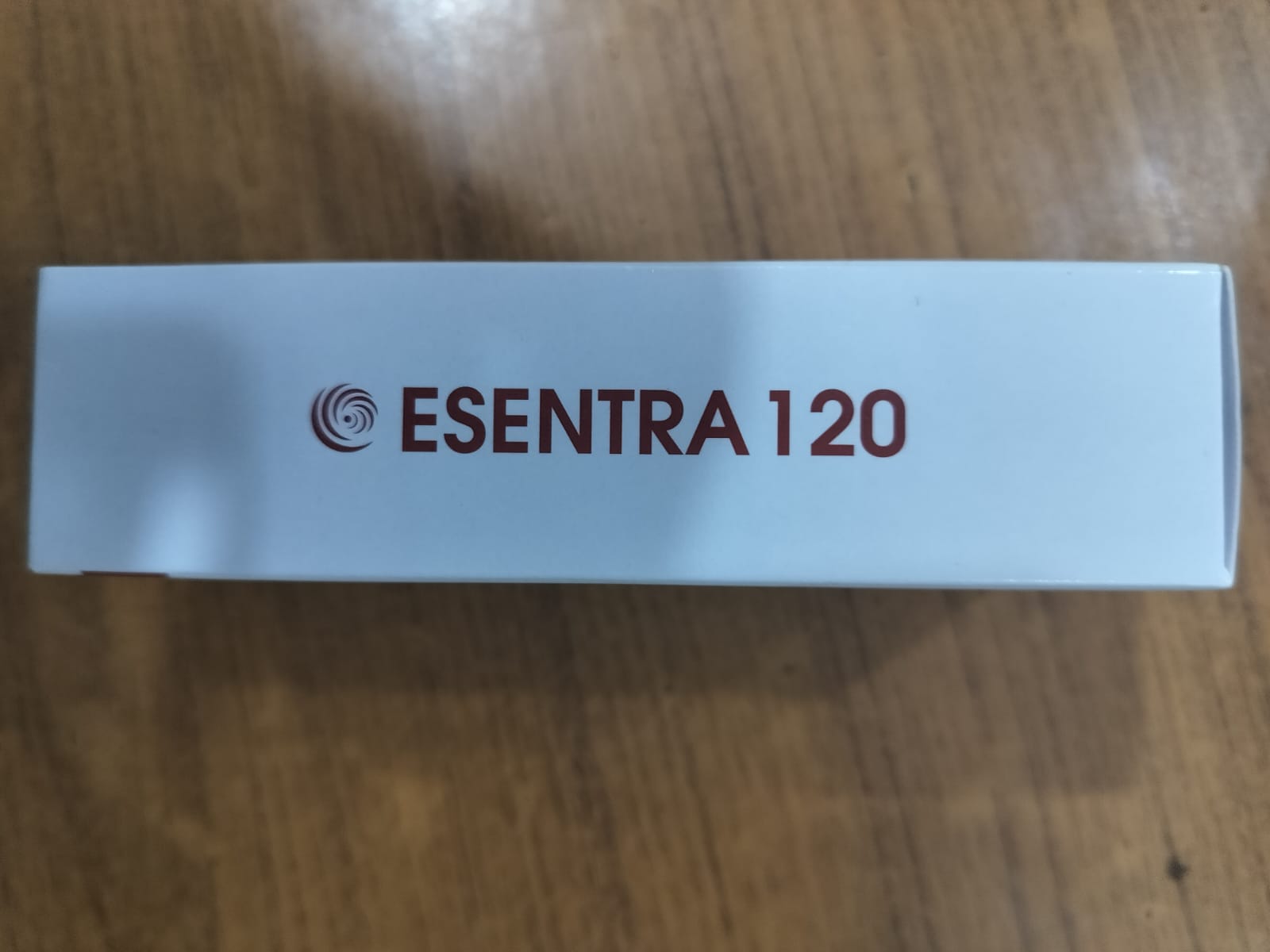
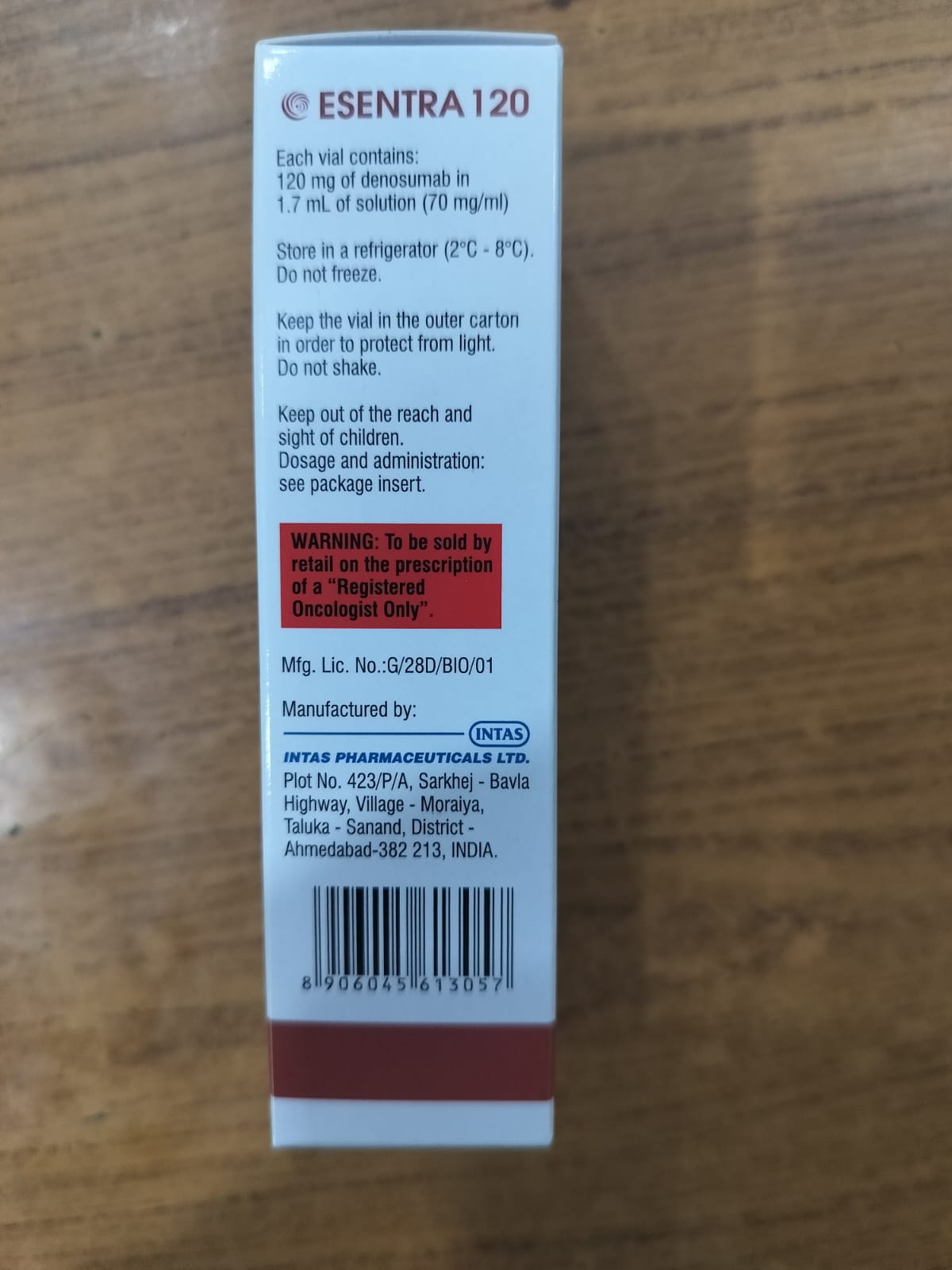
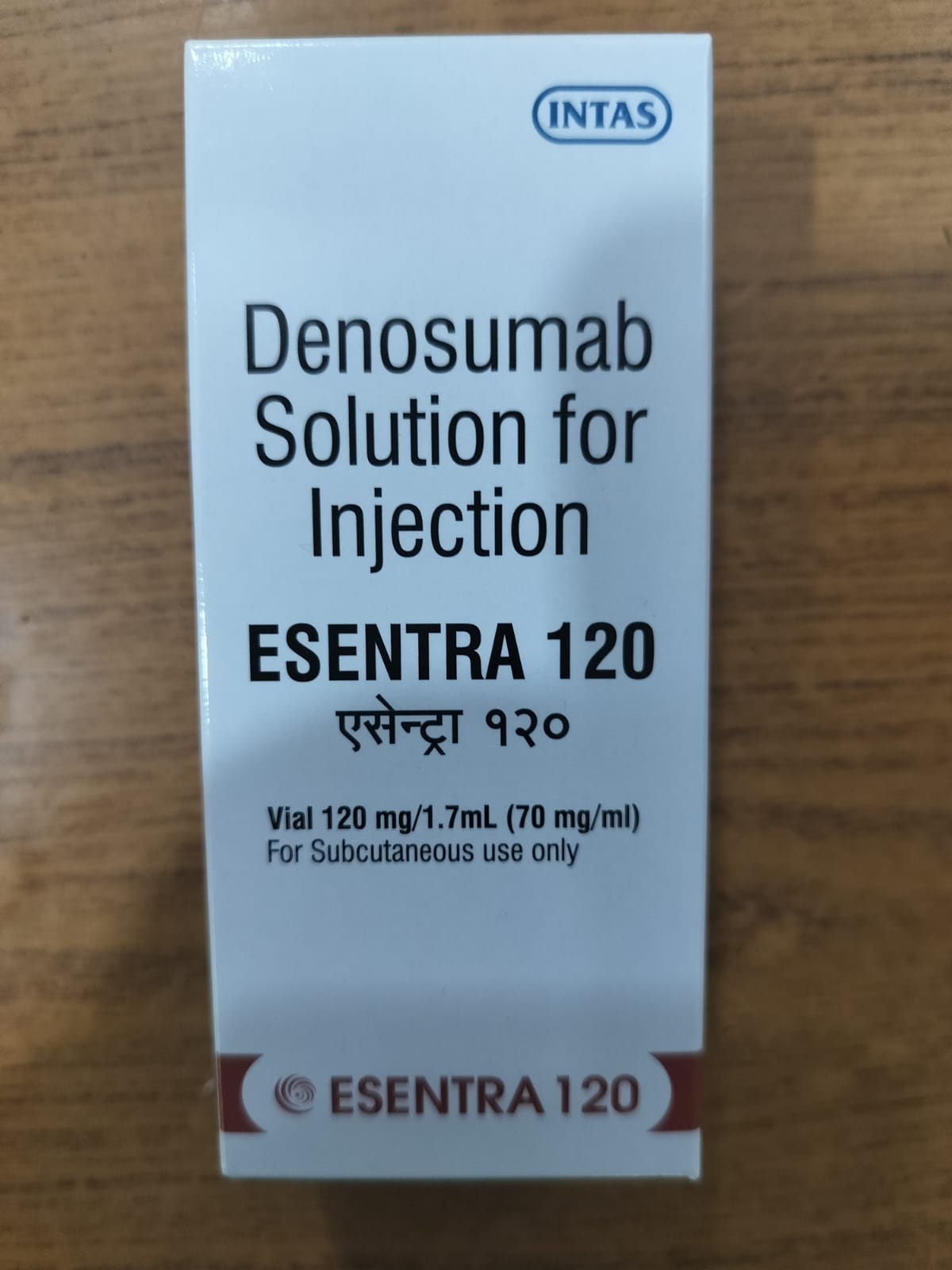








Esentra 120mg contains Denosumab, a monoclonal antibody used for the prevention of skeletal-related events (SREs) in cancer patients with bone metastases, treatment of giant cell tumor of bone (GCTB), and management of hypercalcemia of malignancy. It works by inhibiting RANK ligand (RANKL), a key factor in bone destruction, thereby increasing bone strength and reducing fracture risk.
Choose Quantity:
Generic Name: Denosumab
Brand Name: Esentra
Packing: Pre-filled syringe/Vial
Strength: 120 mg
Manufacturer: [Manufacturer Name]
Form: Subcutaneous Injection
Category: RANK Ligand (RANKL) Inhibitor / Anti-Resorptive Drug
Esentra 120mg is a targeted bone-protective therapy used in cancer patients with bone metastases from solid tumors. It is also prescribed for giant cell tumor of bone (GCTB) and hypercalcemia of malignancy. By blocking RANKL, it reduces bone resorption, prevents fractures, and maintains bone health in patients undergoing cancer treatments.
Esentra 120mg is prescribed for:
Bone Metastases from Solid Tumors – Prevents bone complications such as fractures in cancer patients.
Giant Cell Tumor of Bone (GCTB) – Used in adults and adolescents when surgery is not feasible.
Hypercalcemia of Malignancy (HCM) – Treats high calcium levels in cancer patients when other therapies fail.
Prevention of Skeletal-Related Events (SREs) – Reduces risks of bone fractures, spinal cord compression, and radiation therapy needs in cancer patients.
Store in a refrigerator (2°C – 8°C).
Do not freeze or expose to extreme heat.
Keep in original packaging to protect from light.
Before use, allow the injection to reach room temperature (about 30 minutes).
Do not shake the vial or syringe.
Denosumab is a RANK Ligand (RANKL) inhibitor that prevents osteoclast activation and bone resorption. It works by:
Blocking RANKL, a protein that stimulates osteoclasts (cells that break down bone).
Reducing bone destruction, maintaining bone density and strength.
Preventing tumor-related bone complications, particularly in cancer patients with bone metastases and GCTB.
Low calcium levels (Hypocalcemia)
Fatigue and weakness
Joint and muscle pain
Nausea
Flu-like symptoms
Skin rash or itching
Severe Hypocalcemia (muscle cramps, confusion, irregular heartbeat, seizures)
Osteonecrosis of the Jaw (ONJ) – A rare but serious condition causing jaw pain and delayed healing.
Atypical Bone Fractures – Unusual thigh bone fractures may occur.
Serious Infections – Increased risk of skin, urinary tract, or lung infections.
Severe Allergic Reactions – Swelling of the face, difficulty breathing, dizziness.
Seek immediate medical attention if any severe side effects occur.
120 mg every 4 weeks as a subcutaneous injection.
120 mg every 4 weeks, with additional doses on days 8 and 15 of the first month.
120 mg every 4 weeks until calcium levels normalize.
Important:
Calcium and Vitamin D supplements are recommended during treatment.
Regular blood tests are required to monitor calcium levels.
Given subcutaneously (SC) in the upper arm, thigh, or abdomen.
Administered by a healthcare professional (self-administration is not recommended).
Before use, allow the injection to reach room temperature for 30 minutes.
Do not shake or dilute the solution.
Monitor calcium levels regularly to prevent hypocalcemia.
Dental check-ups are recommended to prevent jaw osteonecrosis.
Avoid invasive dental procedures while on treatment.
Not recommended in pregnancy or breastfeeding.
Patients with kidney disease require close monitoring due to increased risk of hypocalcemia.
Esentra 120mg may interact with:
Calcium & Vitamin D Supplements – Essential to reduce hypocalcemia risk.
Corticosteroids (Prednisone, Dexamethasone) – May worsen bone loss.
Chemotherapy & Immunosuppressants – Increases infection risk.
Bisphosphonates (Zoledronic Acid, Alendronate) – Avoid using together.
Live Vaccines – May reduce immune response.
Inform your doctor about all medications you are taking.
Do not use if allergic to Denosumab or any inactive ingredients.
Symptoms of an allergic reaction: rash, swelling, difficulty breathing, dizziness.
Seek emergency medical help if severe allergic reactions occur.
Severe low calcium levels (muscle spasms, confusion, seizures, irregular heartbeat)
Bone pain or unusual fractures
Severe fatigue or weakness
Seek immediate medical attention.
Treatment includes IV calcium supplementation and electrolyte monitoring.
If a dose is missed, take it as soon as possible.
Do not double the dose to compensate for a missed one.
Long delays in dosing may increase the risk of fractures.
Ensure adequate intake of calcium and vitamin D.
Regular dental check-ups are required to monitor for jaw problems.
Monitor kidney function if at risk of hypocalcemia.
Patients undergoing chemotherapy or radiation should consult their doctor before use.
Esentra 120mg is a targeted bone-protective therapy used in cancer patients with bone metastases from solid tumors. It is also prescribed for giant cell tumor of bone (GCTB) and hypercalcemia of malignancy. By blocking RANKL, it reduces bone resorption, prevents fractures, and maintains bone health in patients undergoing cancer treatments.
Esentra 120mg is prescribed for:
Bone Metastases from Solid Tumors – Prevents bone complications such as fractures in cancer patients.
Giant Cell Tumor of Bone (GCTB) – Used in adults and adolescents when surgery is not feasible.
Hypercalcemia of Malignancy (HCM) – Treats high calcium levels in cancer patients when other therapies fail.
Prevention of Skeletal-Related Events (SREs) – Reduces risks of bone fractures, spinal cord compression, and radiation therapy needs in cancer patients.
Store in a refrigerator (2°C – 8°C).
Do not freeze or expose to extreme heat.
Keep in original packaging to protect from light.
Before use, allow the injection to reach room temperature (about 30 minutes).
Do not shake the vial or syringe.
Denosumab is a RANK Ligand (RANKL) inhibitor that prevents osteoclast activation and bone resorption. It works by:
Blocking RANKL, a protein that stimulates osteoclasts (cells that break down bone).
Reducing bone destruction, maintaining bone density and strength.
Preventing tumor-related bone complications, particularly in cancer patients with bone metastases and GCTB.
Low calcium levels (Hypocalcemia)
Fatigue and weakness
Joint and muscle pain
Nausea
Flu-like symptoms
Skin rash or itching
Severe Hypocalcemia (muscle cramps, confusion, irregular heartbeat, seizures)
Osteonecrosis of the Jaw (ONJ) – A rare but serious condition causing jaw pain and delayed healing.
Atypical Bone Fractures – Unusual thigh bone fractures may occur.
Serious Infections – Increased risk of skin, urinary tract, or lung infections.
Severe Allergic Reactions – Swelling of the face, difficulty breathing, dizziness.
Seek immediate medical attention if any severe side effects occur.
120 mg every 4 weeks as a subcutaneous injection.
120 mg every 4 weeks, with additional doses on days 8 and 15 of the first month.
120 mg every 4 weeks until calcium levels normalize.
Important:
Calcium and Vitamin D supplements are recommended during treatment.
Regular blood tests are required to monitor calcium levels.
Given subcutaneously (SC) in the upper arm, thigh, or abdomen.
Administered by a healthcare professional (self-administration is not recommended).
Before use, allow the injection to reach room temperature for 30 minutes.
Do not shake or dilute the solution.
Monitor calcium levels regularly to prevent hypocalcemia.
Dental check-ups are recommended to prevent jaw osteonecrosis.
Avoid invasive dental procedures while on treatment.
Not recommended in pregnancy or breastfeeding.
Patients with kidney disease require close monitoring due to increased risk of hypocalcemia.
Esentra 120mg may interact with:
Calcium & Vitamin D Supplements – Essential to reduce hypocalcemia risk.
Corticosteroids (Prednisone, Dexamethasone) – May worsen bone loss.
Chemotherapy & Immunosuppressants – Increases infection risk.
Bisphosphonates (Zoledronic Acid, Alendronate) – Avoid using together.
Live Vaccines – May reduce immune response.
Inform your doctor about all medications you are taking.
Do not use if allergic to Denosumab or any inactive ingredients.
Symptoms of an allergic reaction: rash, swelling, difficulty breathing, dizziness.
Seek emergency medical help if severe allergic reactions occur.
Severe low calcium levels (muscle spasms, confusion, seizures, irregular heartbeat)
Bone pain or unusual fractures
Severe fatigue or weakness
Seek immediate medical attention.
Treatment includes IV calcium supplementation and electrolyte monitoring.
If a dose is missed, take it as soon as possible.
Do not double the dose to compensate for a missed one.
Long delays in dosing may increase the risk of fractures.
Ensure adequate intake of calcium and vitamin D.
Regular dental check-ups are required to monitor for jaw problems.
Monitor kidney function if at risk of hypocalcemia.
Patients undergoing chemotherapy or radiation should consult their doctor before use.